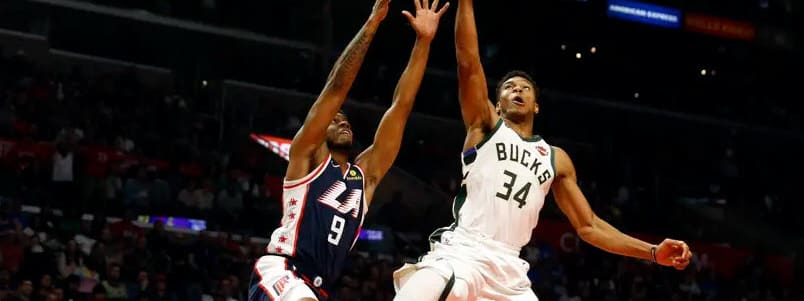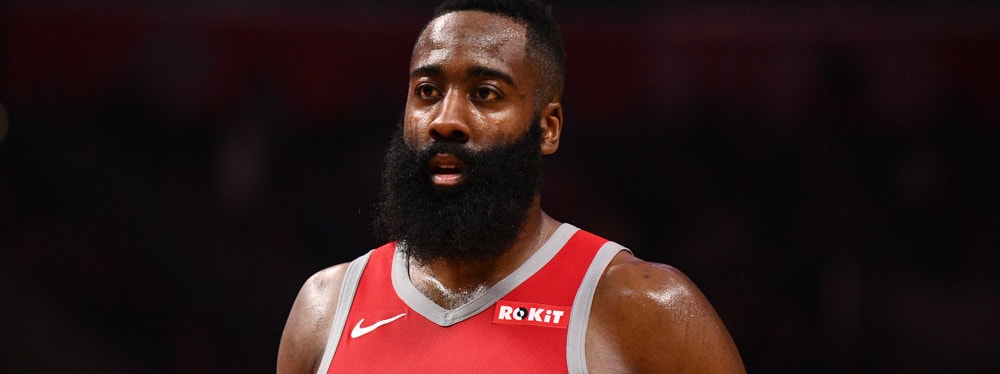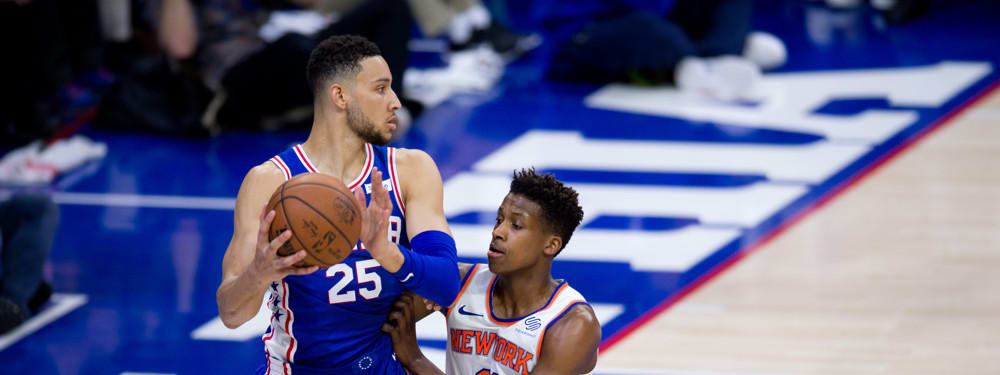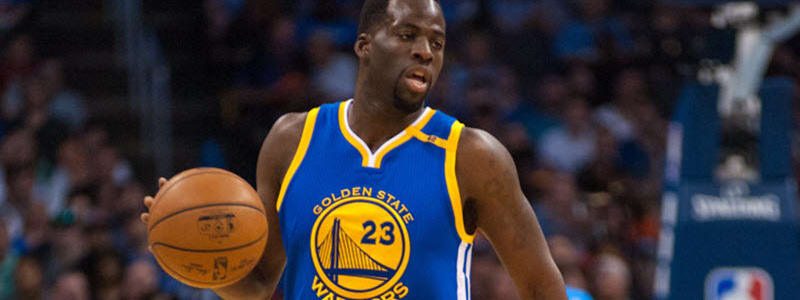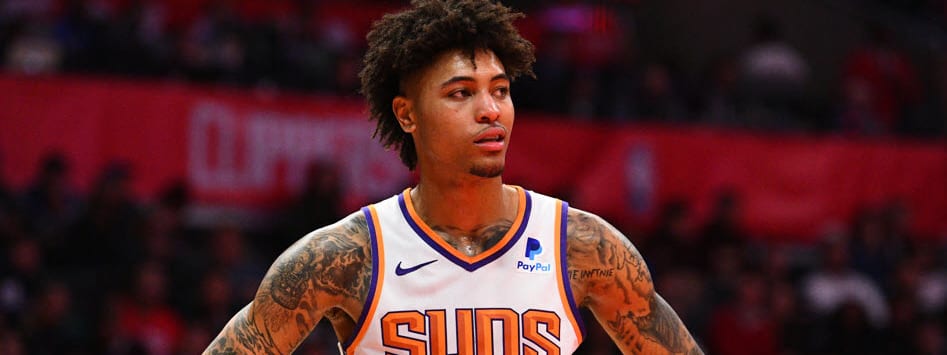Gasol will be entering his 19th NBA season, and the 39-year-old doesn't appear to have much left in terms of on-court production. That was on display last season, as Gasol appeared in just 30 games, the lowest number of his career, across his time with the Spurs and Bucks. After being bought out by San Antonio and signing with Milwaukee, Gasol played in just three games for the Bucks before undergoing season-ending surgery on his left foot. The veteran ended up averaging just 3.9 points and 4.6 rebounds across 12.0 minutes per game. While Gasol is expected to be healthy for the start of his first season with the Trail Blazers, his role will likely be reduced to a very limited one off the bench behind both Zach Collins and Hassan Whiteside. Once Jusuf Nurkic is back healthy after undergoing leg surgery, there's a good chance Gasol will be out of the rotation entirely.
Despite his age and coach Gregg Popovich's propensity to rest his veterans, Gasol saw action in 77 games this past season, which was his most since the 2015-16 campaign. His workload did take a slight hit, though, averaging 23.5 minutes compared to 25.4 minutes a year prior. Still, when Gasol saw extended minutes he was fairly effective and he chipped in across the box score with 10.1 points, 8.0 rebounds, 3.1 assists and 1.0 block. His rebound and block totals kept him as an asset in some Fantasy leagues, though the inconsistencies in his playing time were extremely frustrating. There were 10 games where Gasol played 15 minutes or less and 13 games where he played 30 minutes or more, so it was tough to know when to keep him in lineups and when to sit him. Looking forward to Gasol's 18th NBA season, Fantasy owners can likely expect more of the same. He should see another slight decline in his minutes and coach Popovich will certainly vary his veteran's workload on a night-to-night basis depending on when he wants to ease the strain on his legs. As a result, Gasol will be tough to rely on in many Fantasy formats. It's also worth it to note that the Spurs traded superstar Kawhi Leonard, who missed all but nine games last season, to the Raptors in exchange for DeMar DeRozan and Jakob Poeltl. DeRozan will be the co-No. 1 option alongside LaMarcus Aldridge, while Poeltl could cut into Gasol's court time if he has a strong camp and adjusts quickly to his new team.
Gasol joined the Spurs on a two-year, $31.7 million contract prior to the 2016-17 season as one of the league's top prized free agents, but ended up moving in and out of the top unit, with 39 starts across 64 games. As expected with the move to a more talented roster, Gasol saw his points per game fall from 16.5 to 12.4, while his production across the board dropped with averages of 7.8 rebounds, 2.3 assists and 1.1 blocks. The biggest reasoning for such a decline was his career-low 25.4 minutes per game, which is likely a result of coach Gregg Popovich's rotation, as he prefers to keep his veterans well rested throughout the season. While Gasol opted out of the second year of that previous contract this past offseason, he ended up re-signing with the Spurs on a three-year, $48 million contract, which still allowed the Spurs to add another impressive player in Rudy Gay during free agency. Gay shouldn't have a huge impact on Gasol's workload and the Spurs opted to let Dewayne Dedmon go in free agency, so there's going to be plenty of opportunities for Gasol to start or play a relatively large role at center. However, considering he's now 37 years old and still plays for coach Popovich, it wouldn't be surprising if his playing time ultimately remained relatively the same or falls a bit in order to keep Gasol as fresh as possible for another deep playoff run. For that reason, another slight downtick in his overall production could be forthcoming.
Though he turned 36 years old in July, Gasol is coming off a second consecutive All-Star campaign in what’s been a Hall-of-Fame worthy career. He was one of the few Bulls players who met expectations or largely avoided the injury bug in a disappointing campaign for the team in 2015-16, averaging 16.5 points, 11.0 rebounds, 4.1 assists and 2.0 blocks in 31.8 minutes per game across 72 appearances. While the scoring average and his 46.9 percent shooting mark from the field were the second-worst outputs of his career, he offset that to some degree by posting one of the best assist and block totals of his 15 seasons in the league. For all his great achievements last season, Gasol recognized his own mortality as a pro basketball player and decided to make one last run at an NBA title, joining the Spurs this offseason on a two-year, $30 million contract that includes a player option for 2017-18. He’s set to start at center for San Antonio, replacing the venerable Tim Duncan, who opted for retirement after last season. Given his reputation as a willing passer and as a seven-footer who’s comfortable on the pick-and-pop, Gasol figures to mesh well with his new team, though from a fantasy standpoint, the usual caveats apply with Spurs players. Much like LaMarcus Aldridge experienced a season ago, Gasol will have to sacrifice some of his own production due to the existing talent on hand in San Antonio, with both Aldridge and Kawhi Leonard likely ranking ahead of him in terms of primacy in the offense. In addition, Gasol may incur some more workload restrictions, as coach Gregg Popovich frequently likes to rest his starters during back-to-back sets and limit their minutes in less-competitive contests in order to preserve them for the playoffs. Gasol will still remain a nightly double-double threat in his new destination, but the 20-point, 10-rebound performances he’s often submitted in the past figure to become a little rarer.
Gasol had an excellent first season with the Bulls as he was able to stay healthy and play 78 games, the most games that he has played since the 2010-11 season. Not only did he play a lot, but he played very well as he averaged 18.5 points, 11.8 rebounds, 2.7 assists, 0.3 steals, and 1.9 blocks in 34 minutes per game. His percentages were excellent as well as he shot 49 percent from the field and 80 percent from the free-throw line. Gasol's ability to score in the post was a huge part of the Bulls' success, and the hamstring injury that he suffered in the playoffs against the Cavaliers played big a role in their inability to score when he missed two games. Former Bulls coach Tom Thibodeau always played his starters heavy minutes, so it wouldn't be surprising if new coach Fred Hoiberg plays Gasol less during his 15th season in the league. It's also possible that the Bulls might shake up their starting lineup as Gasol and Joakim Noah didn't seem to gel at times last year, but Gasol would figure to remain a starter even if they did.
Gasol will get a fresh start on the Bulls after toiling away on a lowly Lakers squad last season. In 60 games, Gasol averaged 17.4 points, 9.7 rebounds, 3.4 assists, 0.5 steals, and 1.5 blocks in 31 minutes per game. The veteran forward struggled to fit into coach Mike D'Antoni's offensive system, and the two reportedly clashed as the season wore on. While Gasol still turned in another productive season, a new city and system will likely benefit him, as he enters his 14th year in the NBA. The Spaniard figures to be the perfect complement to the Defensive Player of the Year, Joakim Noah, as he provides a strong low-post scoring presence that the Bulls have lacked in recent years. Coach Tom Thibodeau noted that he'll be utilizing Gasol's diverse skill set this season, particularly his passing ability out of the post and his effectiveness as a playmaker at the elbows. The big man's team-first attitude should mesh well with the type of philosophy that the Bulls have been moving toward over the past few seasons. Gasol plays excellent team defense even if he sometimes struggles in one-on-one situations. His minutes will probably take a small hit due to his age and the sheer amount of talent in the Chicago frontcourt, but don't expect Gasol's numbers to fade too drastically. Look for Gasol to have a revitalized season with the most talent he's had around him since his Lakers' championship teams.
Gasol will get a fresh start on the Bulls after toiling away on a lowly Lakers squad last season. In 60 games, Gasol averaged 17.4 points, 9.7 rebounds, 3.4 assists, 0.5 steals, and 1.5 blocks in 31 minutes per game. The veteran forward struggled to fit into coach Mike D'Antoni's offensive system, and the two reportedly clashed as the season wore on. While Gasol still turned in another productive season, a new city and system will likely benefit him, as he enters his 14th year in the NBA. The Spaniard figures to be the perfect complement to the Defensive Player of the Year, Joakim Noah, as he provides a strong low-post scoring presence that the Bulls have lacked in recent years. Coach Tom Thibodeau noted that he'll be utilizing Gasol's diverse skill set this season, particularly his passing ability out of the post and his effectiveness as a playmaker at the elbows. The big man's team-first attitude should mesh well with the type of philosophy that the Bulls have been moving toward over the past few seasons. Gasol plays excellent team defense even if he sometimes struggles in one-on-one situations. His minutes will probably take a small hit due to his age and the sheer amount of talent in the Chicago frontcourt, but don't expect Gasol's numbers to fade too drastically. Look for Gasol to have a revitalized season with the most talent he's had around him since his Lakers' championship teams.
For the third consecutive season, Gasol posted a double-double with 17.4 points and 10.4 rebounds per game. Defensively, he’s gotten better over the years, though all that really matters defensively in fantasy hoops for big men is if they can average more than a block per game. Gasol averages 1.7 per game for his career. He has an impeccable low-post game, but is varied enough to work off another big man, which came in handy whenever Andrew Bynum was healthy. With Bynum healthy all last season, Gasol’s numbers didn’t drop a bit. All this bodes well for 2012-13 when Gasol will line up next to Dwight Howard. Gasol’s rebound rate could drop, but imagine all the open looks he’ll get while opponents double-team Howard. Gasol has a good mid-range shot, and is coordinated enough to work against defenders with his face-the-basket arsenal of offensive moves. In addition to the game’s most dominant center in the house, Gasol will get to play with Steve Nash, who made Marcin Gortat a double-double producer.
Gasol has been one of the most consistent producers in the NBA for a decade now. The 31-year-old big man once again put together another solid campaign in 2010-11. With averages of 18.8 points and 10.3 rebounds, Gasol averaged a double-double for the second consecutive season. He remained one of the more efficient options at his position, shooting 53.0 percent from the floor, 82.3 percent from the line while cutting down his turnovers from 2.2 to 1.7 per game. His defense remained solid as well with 1.6 blocks per contest. Most importantly for any player reaching his 30s, Gasol managed to stay injury free and play in all 82 games, marking just the second time in the past five seasons he was able to avoid spending a prolonged stretch on the shelf. He’ll once again be sharing a frontcourt with Andrew Bynum and Lamar Odom, but that timeshare hasn’t stopped Gasol from posting nearly identical numbers throughout his first three and a half seasons with the Lakers. While he doesn’t have the upside of some of his younger counterparts, Gasol remains one of the surest bets at power forward to produce at a rate worthy of his early-round cost.
Gasol turned in the best season of his career last year, averaging 18.3 points, 3.4 assists, 1.7 blocks and a career-high 11.3 rebounds. Gasol has hit the weight room and gotten stronger over the past couple of years, and as a result, he's improved defensively, and there were times last year, including the postseason, when he looked like the Lakers' best player. Of course, Kobe Bryant retains that title, but the duo has really learned to play well together. As possibly the best passing big man in the league, Gasol is a perfect fit for Los Angeles' triangle offense, and he's also turned himself into a good free throw shooter – there really is no weakness to his game. Even at 7-0, 250, his footwork is impeccable, and Gasol can finish with his left hand as well as his right. At age 30, he's still in his prime, and with the team hoping to keep Bryant fresh for the playoffs, Gasol might finally get the increase in shot attempts that he clearly deserves (he averaged just 13.0 field goal attempts last season). Among those who qualify at C in most leagues, Gasol's 3.4 apg led the NBA by a wide margin (next best was 2.3), and if Andrew Bynum continues to have injury problems, watch out – during the 15 games Gasol started at center last season, he averaged 22.1 points, 13.1 rebounds, 3.7 assists and 2.4 blocks.
During his first full season in Los Angeles, Gasol averaged 18.9 points and 9.6 rebounds, posted solid percentages from the field (56.7) and the charity stripe (78.1) and helped the Lakers take home their first championship since Shaquille O’Neal left town. Those offensive numbers are right in line with Gasol’s performance after being traded to Los Angeles during the 2007-08 campaign, but his defensive performance dropped a bit as he blocked only one shot per game last season. The offseason addition of Ron Artest should help the Lakers make a run at back-to-back championships, but the extra mouth to feed could have a negative impact on Gasol’s numbers. Artest is known for dominating the ball and occasionally taking errant shots, which could lead to fewer touches for Gasol. Plus, Andrew Bynum, who missed 32 games last season, figures to be healthy when the season tips off, creating a logjam in the Lakers’ frontcourt. With Bynum back in tow, though, Gasol can afford to be more aggressive on defense, and his block totals should increase as a result. Gasol is a well-rounded player who will be the Lakers’ primary low-post scoring option. His numbers may never jump off the box score like some other early-round picks, but his consistency and versatility will help win fantasy leagues.
Gasol was traded from the lowly Grizzlies to the mighty Lakers last season, an excellent career move, but one that doesn’t necessarily improve his individual production. Gasol had averaged more than 20 ppg in each of the previous two seasons in Memphis, but playing next to Kobe Bryant he’s unlikely to improve upon the 18.8 ppg he averaged in 27 starts with the Lakers last season. Gasol had also improved to a 9.8 rpg in his last year in Memphis, but sharing the front line with rebound magnets like Lamar Odom and eventually Andrew Bynum will likely keep Gasol closer to the 7.8 rpg he averaged after the trade. On the other hand, Gasol’s extremely skilled offensive game and excellent passing ability make him an ideal high-post complement to Bynum in the Triangle Offense, and with Bryant drawing opposing defensive attention Gasol has a good chance to continue the career-high shattering 58.9-percent shooting from the field and 3.5 apg-pace he established in LA last season.
Gasol missed the first two months of last season with a foot injury sustained while playing for the Spanish national team over the summer. While devastating to the Grizzlies’ season, the bum foot did not adversely affect his numbers once he returned. Gasol posted career-best marks in scoring (20.8 ppg), rebounding (9.8 rpg), blocked shots (2.1 bpg) and field goal percentage (53.8) on the season, reflecting his growing strength and increasing presence in the post as his frame fills out to absorb NBA contact. Gasol also dished 3.4 assists per night, very respectable from the center position. This season the Grizzlies will likely put the ball in the hands of rookie point guard Mike Conley Jr. If Conley makes a smooth transition to the NBA game, he could make life a lot easier for Gasol which could lead to even better offensive numbers for the Spaniard moving forward.
Before making a decision on Gasol, keep an eye on his recovery from a partial fracture of the fifth metatarsal of his left foot suffered at the FIBA World Championships. He underwent surgery to repair the fracture and, at press time, the Memphis Commercial-Appeal reported up to a three-month recovery, putting the start of the NBA season in jeopardy. Another note for fantasy owners is that Gasol started five games at center last season, so if that’s the magic number in your league, a healthy Gasol’s a top-tier pick at the position. Gasol has a great low-post game, using his quick first step to create scoring opportunities. He can score with his back to hoop or facing it, and is far and away the best offensive player on the Grizzlies. Gasol will be the focus most times down the court, and knows when to shoot and when pass it off (4.6 apg last year, 3.1 career). He also gets to the free-throw line, finishing 11th in the league with 7.7 FTA per game. The Grizzlies brought back Stromile Swift, so he and Jake Tsakalidis could make for a tandem center arrangement, but Memphis’ best offensive unit is the one where Gasol lines up in the middle.
Gasol was a frustrating player to own last season, missing 23 games with foot problems and being less than himself when he returned, but there’s no denying the Spaniard’s talent. Gasol averaged 18 points per game, which is about his career average, but his rebounding average decreased for the third consecutive year, down to 7.3 per game. Part of that has to be chalked up to the injury problems, but Gasol needs to prove something this year if he’s to reclaim his place as a top-tier power forward. Gasol is an underrated shot blocker, rejecting nearly two shots per game, and shot the highest free throw percentage of his career in 2004-05, so he did show improvement in some areas. Gasol is still just 25 years old, so he has room to get better and is still a tantalizing bet to take the next step to the rarified 20/10/2 block/50% FG% club presided over by Garnett, Duncan, and Shaq.
For the first week of the Athens Olympics, Pau Gasol was a force of nature, an irresistable combination of European basketball savvy and the NBA inside power game, drilled into his head by Hubie Brown. He led Spain to an undefeated record in the preliminaries... and a date with the much-maligned Team USA in the opener of the medal round. He started that game the way he'd played in the preliminaries - like a player ready to move into the pantheon of power forwards, with the Duncans and Garnetts. Then, in the second half, he absolutely disappeared, and Spain went out with a whimper and a lot of finger pointing directed at Larry Brown. There's a lesson in there, somewhere, about Pau Gasol and his future in the NBA. His talent is unquestioned. what he appears to lack is the confidence and the will to take over a game. That apparent lack of killer instinct - combined with Hubie Brown's 10-deep sub patterns which limit his minutes - will continue to keep Gasol out of the top tier of fantasy power forwards.
Gasol has become a constant scoring and rebounding threat for the Grizzlies (though many question his toughness). He should be good for 21+ points, 9 rebounds, 3 assists, and a couple blocks per game in 2003.
